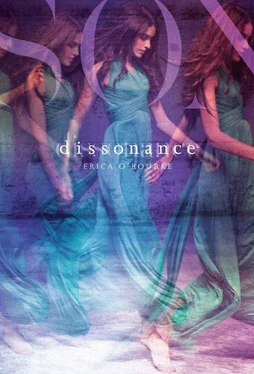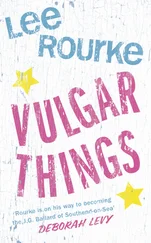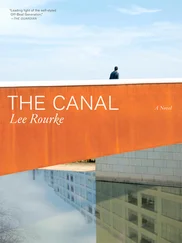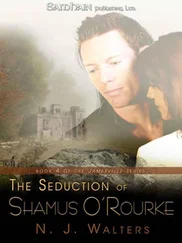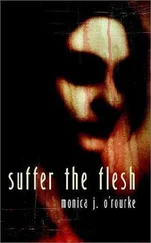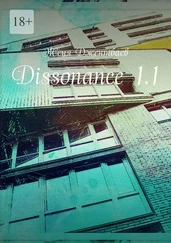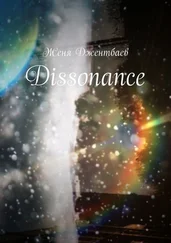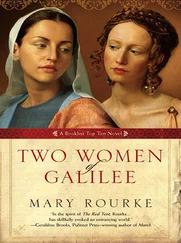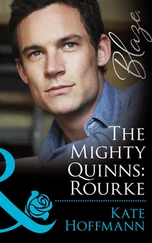Over breakfast, my mom had played a sample of my target frequency, the one I’d need for today’s Walk. But my assignment could wait for a while.
One foot in the Key World, one inside the pivot, I reached into the fabric of the multiverse, choosing a random thread from the dense, rippling weave. The vibration turned my limbs effervescent, while the air grew heavy as water. I hummed, matching the pitch of the string in my hands. The path cleared, resistance fading along with my vision. Another step, and the pivot went wispy and gray.
Another, and I left behind the rules and disappointments and weight of the old world . . .
. . . and walked directly into oncoming traffic.
Exercise caution when crossing a pivot, as conditions may prove unexpectedly hazardous.
—Chapter Two, “Navigation,”
Principles and Practices of Cleaving, Year Five
RUSH HOUR SWALLOWED me whole.
Cars whipped by, sending my hair into a blinding tangle. Trucks belched exhaust fumes, and a Harley roared so loudly I fell backward, gravel biting into my palms. The pivot’s buzz was lost in the chaos. I scrambled out of the path of a beat-up Chrysler, nearly losing my backpack beneath the wheels.
Not a single car honked or swerved.
Technically I wasn’t invisible—Echoes could see Walkers once we touched them. Otherwise we hovered on the edges of their peripheral vision, present but not worth noticing. Usually this was a good thing, allowing us to move freely in Echo worlds. Right now it increased my odds of being flattened.
A semi barreled toward me. I fumbled for the pivot with both hands, searching for a string—any string—to use. One sang out and I latched on to it.
The truck blew by, a burst of diesel-scented air slamming into my back as I dashed through the rift.
Nobody ever said Walking was safe. Nobody ever said it was boring, either.
* * *
The pavement under my feet was pitted and crumbling, with weeds sprouting up through the cracks. On the opposite side of the parking lot stood a rundown apartment complex, the balconies sagging, stick-on numbers missing from half the units. A low, monotone pitch filled my ears, and I gasped in relief.
Adrenaline pumped through my veins, replacing fear with triumph. Sometimes Walking felt like a drug. The aching anticipation, the quicksilver rush, the craving for more—but it was completely legal. Even better, it was expected. I might not be the Walker my parents wanted; that was Addie’s job. But it was my calling, and my life, and the only thing I ever wanted to do.
Best of all, it was infinite.
You could find an endless number of worlds in a single location. If one Echo didn’t suit you, a few steps and a flick of your fingers would bring you to another. The rush never had to end.
Again and again I crossed the pivot, choosing new frequencies each time. I visited hospitals and strip malls, farmhouses and factories, reveling in the sensation of slipping between worlds. I never stayed long, and it never got old, watching the differences that sprang up, each Echo a unique combination of choices and circumstances.
In every world I left a tiny origami star, no bigger than a quarter. Breadcrumbs, my grandfather called them. A piece of the Key World, left behind to mark the way home. As a child, I’d done it to humor him. Now it was part habit and part superstition, my own private ritual.
My world hopping caught up with me in a forest preserve. A dull ache spread through my skull, and my ears rang with the key change. Time to get to work and head home. I could terrify Eliot with my near miss, find out what new disaster my parents had fixed.
Humming the frequency my mom had given me, I stepped into the rift. The string responded, gaining strength, and I followed it through. The massive oak trees disappeared, and when my vision cleared, the dirt path underfoot had shifted to asphalt. Leaf-strewn grass spread out on either side of me. The clouds parted, late-afternoon sunlight warm on my face. I turned in a slow circle, taking in the changes. A big jump in frequencies, for this world to look so different from ours.
On the other side of the pivot, the roadside memorial flickered like the afterimage when you stare at a bright light for too long.
Then it vanished, only a slight ripple marking where someone had died and the world had split in two.
Vibrato fractums (commonly called “breaks”) are areas of instability within an Echo and an indicator of significant problems. Direct contact with vibrato fractums should be kept to a minimum.
—Chapter One, “Structure and Formation,”
Principles and Practices of Cleaving, Year Five
ACCORDING TO FAMILY legend, I took my first Walk when I was eight months old—long before my first steps and years before most other kids. Wearing nothing but Pampers and a dimple, I’d crawled through a pivot outside our living room, leaving behind my stuffed panda and my outraged older sister.
Even at four, Addie was a fan of rules, and rule number one in our house was no Walking without an adult. So she fetched our grandfather, Monty, and he came after me.
Addie might have caught me, but Monty brought me back.
My grandfather liked to say it was the first sign I was something special, even among Walkers. Addie said it was the first sign I was going to be a pain in the ass. Everyone agreed it was a sign of things to come. I’d been named the problem child; Addie was the good girl. Sixteen years later, and the labels stuck fast.
I gritted my teeth at the frequency surrounding me. My mom had predicted this world would be mildly off-key, but the wavering pitch was stronger—and more unstable—than expected. At most I could last a couple of hours.
I followed the jogging trail around the perimeter of the park, past the duck pond and the picnic shelter, heading for the playground. It would have been pretty, if the whole Echo didn’t sound so awful. Two guys played Frisbee at the water’s edge, the ebb and flow of their laughter obscured by a screeching that made me wince.
Break by the duck pond. Noted.
For an Echo to sound this unstable, there had to be multiple breaks nearby overtaking the primary frequency. I listened for them, ears straining as I put some distance between me and the Frisbee game.
The wind shifted in the trees, bringing the rich smell of autumn with it. Joggers and cyclists passed by, oblivious to the noise surrounding them, their eyes sliding over me.
The playground teemed with shrieking kids leaping off the monkey bars, going down the slide headfirst, playing freeze tag. Two moms pushed their toddlers on the swings, gossiping about playgroups and marital woes. Distracted and jittery from the discord, I slid a pale purple square of paper from my backpack, creasing and folding until a four-pointed star took shape. As I worked, another noise fought for my attention. More ragged, less musical. Annoying. I looked around.
A little girl, four or five, huddled at the base of a tree, sobbing in the unashamed, exceedingly wet way kids do—snot and tears and misery plastered down her front, her wails nearly as loud as the world’s pitch.
Except for breaks, everything in an Echo, living or dead, should resonate at the same frequency. I moved closer, brushing a hand along the girl’s dimpled elbow, wondering if I’d missed something.
I hadn’t. Her signal matched, which meant she was off-limits. Interacting with her would only make things worse, could actually create a break. Smarter to move along and leave her to her sobfest.
The problem was, touching an Echo—even a stable one—caused them to notice you. The kid snuffled and clutched my sleeve, tipping back her tearstained face to look directly at me.
Читать дальше
